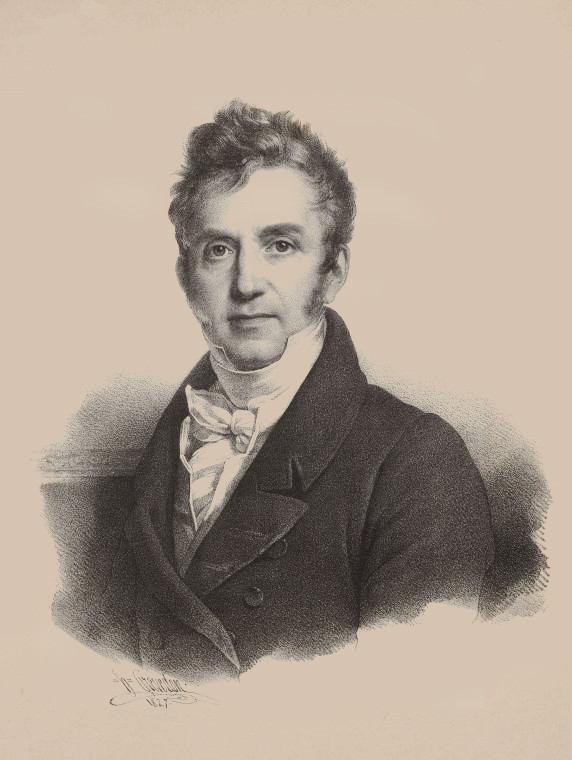Early Life and Musical Beginnings
Born on February 16, 1774, in Bordeaux, France, Jacques Pierre Joseph Rode showed an exceptional talent for the violin from a very young age. His innate musical abilities caught the attention of André Fauvel, a prominent local violinist who became Rode’s first teacher. Under Fauvel’s tutelage, young Jacques quickly developed his skills, laying the foundation for what would become a revolutionary approach to violin playing.
The Paris Years and Viotti’s Influence
At the age of 13, Rode’s extraordinary abilities led him to Paris, where he encountered a pivotal figure in his musical development: Giovanni Battista Viotti. Recognized as one of the greatest violinists of his time, Viotti took Rode under his wing, becoming his primary instructor and mentor. This relationship would prove transformative not just for Rode, but for the entire world of violin performance.
Viotti’s influence on Rode’s technique and musical philosophy was profound. He instilled in the young virtuoso a commitment to pure tone production, expressive bowing, and elegant musical interpretation. These principles would become hallmarks of Rode’s playing style and would later form the basis of the French school of violin playing.
Rise to Fame and European Tours
Rode’s debut at the Théâtre de Monsieur in Paris in 1790 marked the beginning of a stellar career. His performances were characterized by a pure, singing tone, impeccable technique, and a depth of expression that captivated audiences. As his reputation grew, Rode embarked on extensive tours across Europe, performing in major musical centers and royal courts.
One of the most significant periods in Rode’s career was his time in St. Petersburg, where he served as solo violinist to Tsar Alexander I from 1804 to 1808. This prestigious position not only brought him fame and fortune but also provided a rich source of inspiration for his compositions.
Compositional Legacy
Throughout his career, Rode composed extensively for the violin, creating works that continue to challenge and inspire violinists to this day. His compositions seamlessly blended technical brilliance with musical depth, reflecting both his virtuosic skills and his artistic sensibilities.
Famous Works:
-
24 Caprices for Solo Violin: Perhaps Rode’s most enduring contribution to the violin repertoire, these caprices serve as both technical études and expressive musical pieces. They remain an essential part of violin pedagogy and are frequently performed in concerts.
-
Violin Concertos: Rode composed 13 violin concertos, with his Violin Concerto No. 7 in A minor being particularly renowned. These concertos showcase his understanding of the instrument’s capabilities and his gift for melodic invention.
-
Quatuors Concertants: Rode’s string quartets demonstrate his skill in chamber music composition, blending virtuosic writing with sophisticated ensemble interplay.
-
Air Varié: These sets of variations on popular themes allowed Rode to display both his compositional creativity and his technical prowess as a performer.
Pedagogical Influence and the French Violin School
Rode’s impact on violin pedagogy cannot be overstated. As a professor at the Paris Conservatoire, he played a crucial role in shaping the French school of violin playing. His teaching emphasized:
- Elegance and refinement in tone production
- Precise and expressive bowing techniques
- A singing, lyrical approach to melody
These principles, codified in his compositions and teaching, influenced generations of violinists and helped establish France as a center of violin excellence in the 19th century.
Personal Life and Challenges
While Rode’s professional life was marked by success and acclaim, his personal life had its share of challenges. His marriage to Adélaïde Fauvel, the daughter of his first teacher, brought stability to his often tumultuous life as a touring virtuoso. However, the demands of his career often strained his personal relationships.
In the later years of his career, Rode faced a gradual decline in his playing abilities, possibly due to health issues. This led to a series of less successful performances, particularly during his final tour of Germany in 1813. Despite these setbacks, Rode’s dedication to his art never wavered. He continued to compose and teach, focusing on passing on his knowledge and passion to the next generation of violinists.
Legacy and Influence on Classical Music
Jacques Rode’s legacy extends far beyond his own lifetime. His approach to violin technique, emphasizing a seamless blend of technical precision and expressive musicality, continues to influence violin pedagogy to this day. The works he left behind remain essential components of the violin repertoire, challenging and inspiring violinists around the world.
Rode’s influence can be seen in the works of many composers who followed him. Ludwig van Beethoven, impressed by Rode’s playing, composed his last violin sonata (Op. 96) specifically for the French virtuoso. This connection between Rode and Beethoven highlights the violinist’s significant standing in the musical world of his time.
Moreover, Rode’s emphasis on a singing, expressive style of playing helped bridge the Classical and Romantic eras in violin performance. His approach influenced later violinists and composers, contributing to the development of the Romantic violin concerto and sonata.
Conclusion: The Enduring Impact of a Violin Virtuoso
Jacques Pierre Joseph Rode’s life and work embody the spirit of innovation and excellence that characterized the golden age of violin playing. From his early days as a prodigy in Bordeaux to his position as one of Europe’s most celebrated violinists, Rode’s journey reflects the power of dedication, artistry, and pedagogical influence.
His compositions, particularly the 24 Caprices, continue to be staples of the violin repertoire, challenging and inspiring violinists more than two centuries after their creation. As a performer, composer, and teacher, Rode left an indelible mark on the world of classical music, shaping the development of violin technique and performance practice for generations to come.
Today, as violinists around the world study and perform Rode’s works, they connect with a musical legacy that spans centuries. The elegance, precision, and expressive depth that characterized Rode’s playing continue to serve as a model for aspiring and accomplished violinists alike, ensuring that his influence on the art of violin playing remains as vibrant and relevant as ever.

